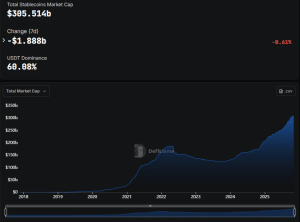Amazon Challenges Temu and Shein with Wider Rollout of ‘Bazaar’ App
TLDRs;
- Amazon expands its budget shopping app “Bazaar” to 14 new countries across Asia, Latin America, and the Middle East.
- Most products are priced below $10, positioning Amazon directly against Temu and Shein’s low-cost models.
- Bazaar supports global payment cards but omits popular local wallets, creating room for fintech partnerships.
- Analysts say Amazon’s undisclosed fulfillment strategy may define whether Bazaar is a long-term play or subsidy push.
Amazon is ramping up its global e-commerce ambitions with a broader rollout of its budget-focused app, Amazon Bazaar, to 14 new markets across Asia, Latin America, and the Middle East.
The expansion marks the tech giant’s latest bid to challenge Chinese fast-fashion players Temu and Shein, who have rapidly gained ground with their low-cost, direct-to-consumer models.
The app, designed to cater to price-sensitive shoppers, offers fashion, home, and lifestyle products, many priced below US$10, with some listings as low as US$2. The Bazaar platform aims to combine affordability with Amazon’s reputation for reliability and reach, providing a simpler, mobile-first shopping experience that appeals to emerging market consumers.
Previously, Amazon’s budget shopping initiative, known under the Amazon Haul model, was available in regions such as the US, UK, Germany, France, Italy, Spain, Japan, Australia, Mexico, Saudi Arabia, and the UAE. With this new rollout, Bazaar now extends to Hong Kong, the Philippines, Taiwan, Kuwait, Qatar, Bahrain, Oman, Peru, Ecuador, Argentina, Costa Rica, the Dominican Republic, Jamaica, and Nigeria.
Targeting Temu and Shein’s Dominance
Amazon’s move appears directly aimed at Temu and Shein, two e-commerce disruptors that have captured massive market share by offering ultra-cheap items shipped directly from China. Both platforms have leveraged cross-border supply chains and viral marketing to dominate the global low-cost retail segment.
However, Amazon’s Bazaar strategy remains somewhat opaque. The company has not disclosed whether its logistics rely on local warehousing or international fulfillment, two factors that heavily influence shipping times and costs. Cross-border shipping enables lower prices but often results in long delivery windows. By contrast, local storage improves delivery speed but raises operational expenses.
Analysts suggest that Amazon’s lack of clarity on fulfillment could be strategic. The platform may be testing different models per region, optimizing between cost efficiency and customer satisfaction. Some speculate that Bazaar could initially operate as a subsidized user acquisition play, luring consumers away from Temu and Shein before tightening margins later.
Payment Gaps Present Opportunities
Bazaar supports Visa, Mastercard, and American Express payments, but currently lacks local wallet integrations or cash-on-delivery options, a notable gap in markets where mobile money dominates.
In the Philippines, for example, digital wallet GCash is a preferred method for millions of users, while in Nigeria, consumers frequently rely on bank transfers or regional wallets for online transactions. Without these options, Amazon may face conversion challenges at checkout in the very markets it seeks to win.
Payment processors and fintech firms see this as an opportunity. Companies capable of bridging local payment preferences could become vital partners as Amazon seeks to deepen its presence in these diverse, high-growth economies.
The post Amazon Challenges Temu and Shein with Wider Rollout of ‘Bazaar’ App appeared first on CoinCentral.
You May Also Like

Privacy Coins Rally Driven by Technicals, Narrative

‘Survival Mode’ Activated: Bitcoin Miners Struggle As Hashprice Collapses
